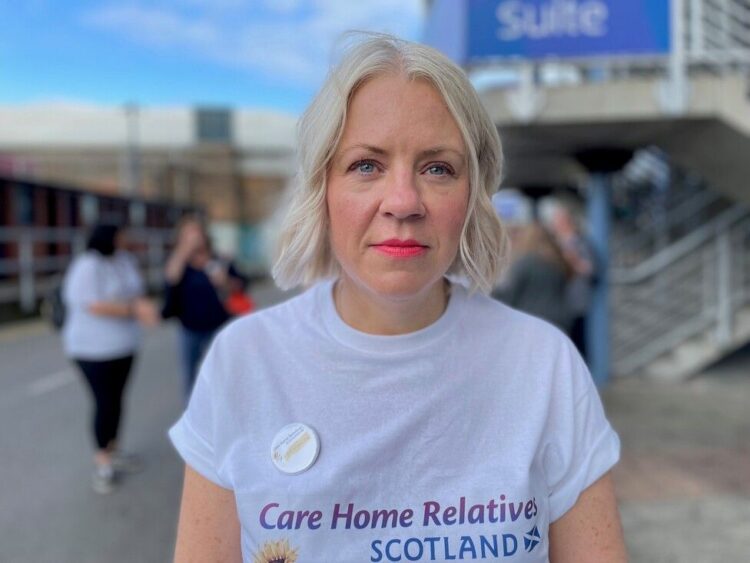By Emily Caulkett-
The fight for a voice by Care home relatives in the Covid Inquiry currently taking place in Scotland continues.
In the wake of the decision by Baroness Hallett, chair of the UK Covid-19 Inquiry, to deny core participant status to Care Home Relatives Scotland (CHRS) and CHRS Lost Loved Ones, concerns have been raised regarding the representation of care home residents and their families in the inquiry process.
While Baroness Hallett assured that providing evidence is not contingent upon being a core participant, questions remain about the legitimacy of these concerns and whether the assurance provided is sufficient consolation.
The exclusion of CHRS and its affiliates from core participant status in Module 6 of the inquiry, focusing on the impact of the pandemic on the adult social care sector across the UK, has sparked frustration and disappointment among campaigners.
They argue that their unique experiences and advocacy efforts throughout the pandemic warrant their inclusion as core participants.
However, Baroness Hallett maintained that their role in influencing visiting guidance in Scotland was not direct and significant enough to merit core participant status.
One of the primary concerns voiced by campaigners is the perceived lack of representation and voice for care home residents and their families in the inquiry process
CHRS expressed deep disappointment, labelling the decision as disheartening and questioning the relevance of the inquiry’s findings for Scotland. They fear that without their inclusion, key perspectives and experiences may be overlooked, undermining the pursuit of justice and accountability.
Campaigners emphasize the distinctiveness of their interactions with decision-makers and the importance of their contributions in advocating for care home residents throughout the pandemic.
They argue that other organizations may not adequately represent their interests and experiences, highlighting the need for their inclusion as core participants to ensure comprehensive and accurate representation in the inquiry.
Baroness Hallett’s reassurance that providing evidence to the inquiry remains open to all, regardless of core participant status, offers some consolation to campaigners.
However, questions remain about the extent to which their voices will be heard and their contributions acknowledged in the absence of core participant status.
Questions persist about the effectiveness of providing evidence outside the framework of core participant status in influencing the inquiry’s findings and recommendations.
The legitimacy of these concerns is underscored by the significant role that care home campaigners have played in advocating for the rights and well-being of care home residents and their families throughout the pandemic.
Their exclusion from core participant status raises questions about the inclusivity and comprehensiveness of the inquiry process, particularly in addressing the unique challenges faced by care home residents and their families.
While Baroness Hallett’s assurance that providing evidence is not contingent upon core participant status is welcomed, it remains to be seen whether this will effectively address the concerns raised by campaigners.
The assurance may provide some consolation, but the true test lies in the extent to which care home campaigners’ voices are heard and their contributions valued in shaping the inquiry’s findings and recommendations.

AD: Heritage And Restaurant Lounge Bar
-
Share On
- Categories
- Date



